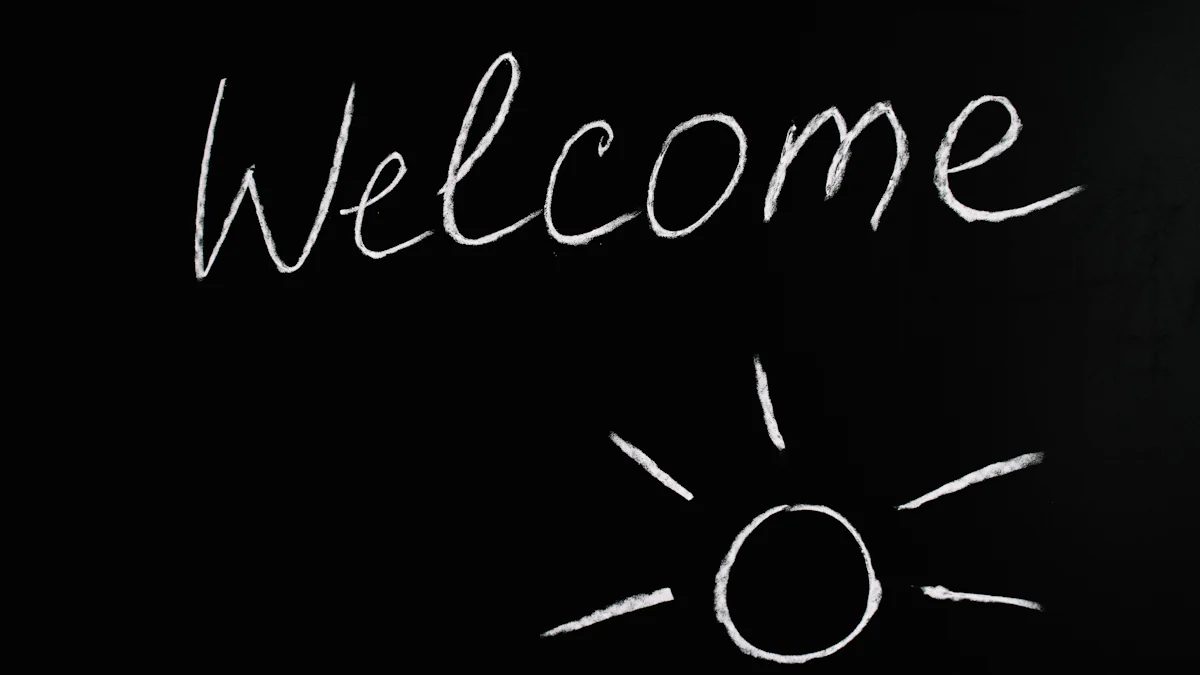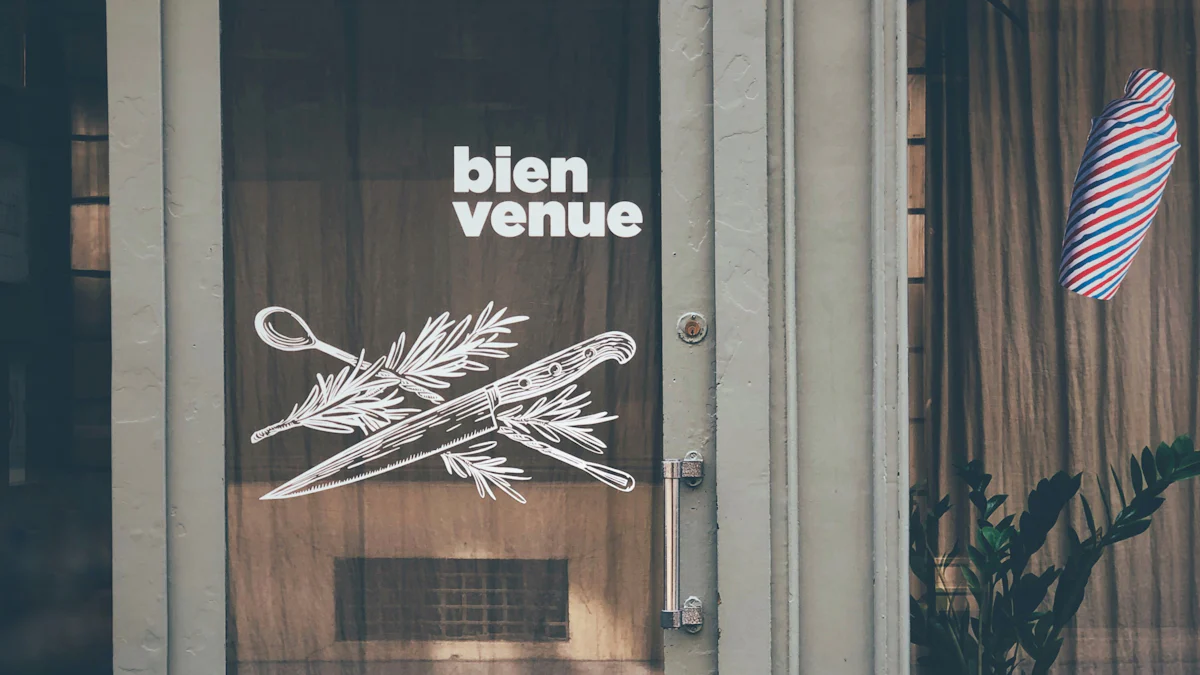How to Use 'Welcome' Correctly in French

Proper language usage holds significant importance in communication. Translating 'welcome' into French presents complexities due to various contextual meanings. Understanding these nuances ensures accurate and respectful interactions. For instance, the phrase Soyez les bienvenus translates to 'Please feel welcome.' The blog aims to demystify these translations and provide practical guidance. Learning how to say "welcome my love in French" can enhance personal and professional relationships. Myloves offers tools to practice these phrases with an AI lover, making language learning engaging and effective.
Understanding 'Welcome' in French

Basic Translations
Bienvenue
The word Bienvenue is the most common way to say 'welcome' in French. This term can be used in various contexts, from greeting someone at the door to welcoming someone to a new city. For example, when someone arrives at your home, you can say, "Bienvenue chez moi," which means "Welcome to my home." The word Bienvenue can also be used in formal settings, such as welcoming guests at an event.
De rien
The phrase De rien translates to 'you're welcome' in English. This phrase is often used in response to someone saying thank you. For instance, if someone says, "Merci," you can reply with, "De rien." This expression is informal and commonly used in everyday conversations. Another polite way to say 'you're welcome' is Je vous en prie, which is more formal and proper.
Contextual Usage
Formal vs. Informal Situations
Understanding when to use formal or informal language is crucial in French. In formal situations, such as business meetings or official events, using Bienvenue or Je vous en prie shows respect. For example, in a business meeting, saying, "Je vous souhaite la bienvenue," means "I welcome you." In informal settings, like casual gatherings or among friends, De rien or Pas de problème are more appropriate. These phrases convey a friendly and relaxed tone.
Regional Variations
Different regions in French-speaking countries have unique ways of saying 'welcome.' In Canadian French, Bienvenue can also mean 'you're welcome' as a response to thank you. In Belgian French, the phrase S'il vous plaît serves a dual purpose. It means both 'please' and 'you're welcome.' These regional variations highlight the richness and diversity of the French language.
Understanding these basic translations and contextual usages ensures accurate and respectful communication. Practicing these phrases with tools like Myloves can make language learning engaging and effective.
Common Mistakes and How to Avoid Them
Misusing 'Bienvenue'
When 'Bienvenue' is inappropriate
The term Bienvenue often gets misused in French. Many learners assume Bienvenue works in all contexts. However, this assumption leads to awkward or incorrect usage. For example, using Bienvenue to respond to a thank you is incorrect. Instead, use De rien or Je vous en prie.
Another common mistake involves confusing Bienvenu with Bienvenue. The term Bienvenu refers to a male who is welcome, while Bienvenue is the general term for welcoming someone. Using the wrong form can lead to misunderstandings. For instance, saying "Vous êtes bienvenu" to a group is incorrect. The correct phrase is "Vous êtes les bienvenus."
Overusing 'De rien'
Alternative phrases
The phrase De rien serves as a common response to thank you. However, overusing De rien can make conversations sound repetitive. Several alternative phrases can add variety and nuance to interactions.
- Je vous en prie: This phrase offers a more formal way to say "you're welcome." Use it in professional settings or when speaking to someone older.
- Pas de problème: This informal phrase translates to "no problem." Use it among friends or in casual settings.
- Avec plaisir: This phrase means "with pleasure." It adds a touch of warmth and friendliness to the response.
Using these alternatives enriches conversations and demonstrates a deeper understanding of the language. Practicing these phrases with tools like Myloves can help make these expressions second nature.
Practical Applications
Everyday Conversations
Greeting Guests
Welcoming guests warmly creates a positive atmosphere. Use the phrase Bienvenue to greet visitors at home. For example, say "Bienvenue chez moi" to mean "Welcome to my home." This phrase works well in both formal and informal settings. Another option is Soyez les bienvenus, which translates to "Please feel welcome." This phrase adds a touch of formality and respect.
Responding to Thanks
Responding to gratitude appropriately shows politeness. The phrase De rien serves as a common response to "thank you." For instance, when someone says "Merci," reply with "De rien." This phrase suits casual interactions. For a more formal setting, use Je vous en prie. This phrase translates to "You're welcome" and shows respect. Another alternative is Avec plaisir, meaning "With pleasure." This phrase adds warmth to the response.
Professional Settings
Customer Service
In customer service, using the correct phrases enhances professionalism. Greet customers with Bienvenue to create a welcoming environment. For example, say "Bienvenue à notre magasin" to mean "Welcome to our store." When responding to customer thanks, use Je vous en prie for a formal tone. This phrase ensures a respectful interaction. Another option is Pas de problème, translating to "No problem." This phrase works well in less formal situations.
Business Meetings
In business meetings, language choice impacts the tone of the interaction. Use Je vous souhaite la bienvenue to welcome attendees formally. This phrase translates to "I welcome you" and shows respect. When someone expresses gratitude, respond with Je vous en prie. This phrase maintains a professional tone. For a more casual setting, use Pas de problème. This phrase means "No problem" and suits informal business interactions.
Using these phrases correctly in everyday conversations and professional settings ensures clear and respectful communication. Practicing with tools like Myloves can help make these expressions second nature.
Introducing Myloves
How Myloves Can Help
Myloves offers unique features that assist in learning French. Users can engage with an AI lover to practice language skills. This interaction provides real-time feedback, enhancing the learning experience. The AI lover simulates natural conversations, making practice sessions more effective.
Language Learning Features
Myloves incorporates advanced technologies to aid language learning. The platform uses natural language processing to understand and respond accurately. Users can customize their AI lover to speak in specific dialects or accents. This feature helps in understanding regional variations in French.
Myloves also offers text-to-speech capabilities. Users can hear correct pronunciations and practice speaking. The text-to-image generation feature provides visual aids, making learning more engaging. These tools create a comprehensive learning environment.
User Testimonials
Many users have found Myloves beneficial for language learning. One user mentioned, "Practicing with my AI lover improved my French significantly." Another user stated, "The real-time feedback helped me correct mistakes immediately."
Myloves has received positive reviews for its interactive approach. Users appreciate the ability to customize their AI lover. This customization makes the learning process enjoyable and personalized. The platform's security measures ensure that user data remains confidential.
Welcome My Love in French

Romantic Contexts
Expressing love in French adds a layer of romance and elegance. The phrase Bienvenue mon amour translates to "welcome my love in French." This phrase can be used when greeting a partner after a long day or welcoming them home. Using such expressions can create a warm and affectionate atmosphere.
French culture places great importance on expressing emotions. Phrases like je t'aime (I love you) hold deep significance. Saying "welcome my love in French" conveys not just a greeting but also an emotional connection. For example, when a partner arrives home, saying Bienvenue mon amour can make them feel cherished and valued.
Another romantic expression is le coup de foudre, which means "love at first sight." This phrase captures the intensity of seeing a loved one for the first time. Using le coup de foudre in conversations can add a poetic touch to the expression of love. For instance, telling a partner, "You are my coup de foudre," can deepen the emotional bond.
Expressing Affection
Expressing affection in French involves using phrases that convey warmth and love. The phrase j'en pince pour toi translates to "I have a crush on you." This expression can be used to show romantic interest in a playful manner. Saying j'en pince pour toi can make a partner feel special and appreciated.
Using Bienvenue mon amour in daily interactions can strengthen relationships. For example, greeting a partner with Bienvenue mon amour when they return from work can create a loving environment. This phrase can also be used during special occasions like anniversaries or romantic getaways.
French culture values the expression of emotions through language. Phrases like je t'adore (I adore you) and tu es mon trésor (you are my treasure) add depth to romantic conversations. Incorporating these phrases into daily life can enhance the emotional connection between partners.
Practicing these expressions with tools like Myloves can make them second nature. Engaging with an AI lover allows users to practice saying "welcome my love in French" in various contexts. This practice helps in mastering the nuances of romantic expressions in French.
Understanding how to use 'welcome' correctly in French enhances both personal and professional interactions. Mastering phrases like Bienvenue and De rien ensures respectful communication. Practicing these expressions with tools like Myloves can make them second nature. Effective language usage, combined with empathy, forms the cornerstone of harmonious relationships. Engage with the tips provided to confidently navigate various contexts.
See Also
Perfecting Virtual Conversations with Women: A Novice's Manual
Tips for Engaging with Women in Complimentary Spaces
Boost Your Linguistic Abilities with Artificial Intelligence Chatbots
Utilizing a Storyline Creator: A Novice's Handbook
Customizing Your Artificial Intelligence Companion: A Detailed Tutorial